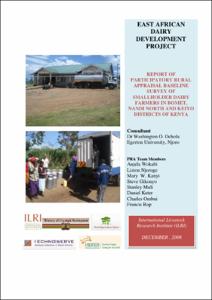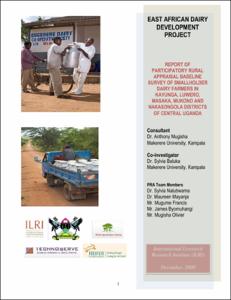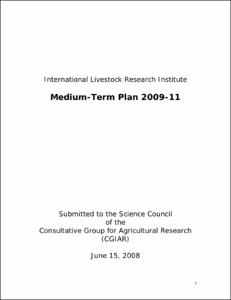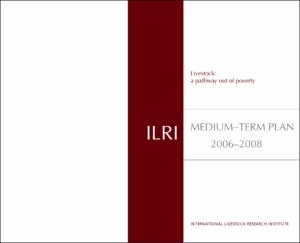Location
Vision, mission and strategy
ILRI's strategy 2013-2022 was approved in December 2012. It emerged from a wide processof consultation and engagement.
ILRI envisions... a world where all people have access to enough food and livelihood options to fulfil their potential.
ILRI’s mission is... to improve food and nutritional security and to reduce poverty in developing countries through research for efficient, safe and sustainable use of livestock—ensuring better lives through livestock.
ILRI’s three strategic objectives are:
- with partners, to develop, test, adapt and promote science-based practices that—being sustainable and scalable—achieve better lives through livestock.
- with partners,to provide compelling scientific evidence in ways that persuade decision-makers—from farms to boardrooms and parliaments—that smarter policies and bigger livestock investments can deliver significant socio-economic, health and environmental dividends to both poor nations and households.
- with partners,to increase capacity among ILRI’s key stakeholders to make better use of livestock science and investments for better lives through livestock.
This is ILRI’s second ten-year strategy. It incorporates a number of changes, many based on learning from the previous strategy (2000–2010, initially produced in 2000 and modified in 2002), an interim strategy (2011–2012) and an assessment of the external and internal environments in which the institute operates.
Members:
Resources
Displaying 726 - 730 of 1152Training manual on agricultural water management
This training manual on agricultural water management has been prepared with the aim of providing reference and guidance materials on smallholders' agricultural management, primarily for Ethiopian farmers, with support of development agents and technical personnel. The documents use existing knowledge in the form of texts, figures, demonstration materials derived from various sources such as books, grey literature such as web material, reports, manuals, etc.
Report of participatory rural appraisal baseline survey of smallholder dairy farmers in Bomet, Nandi North and Keiyo Districts of Kenya
Report of participatory rural appraisal baseline survey of smallholder dairy farmers in Kayunga, Luwero, Masaka, Mukono and Nakasongola Districts of Central Uganda
International Livestock Research Institute. Medium-term plan 2009-11
This strategy takes into account the new market opportunities being created for small-scale livestock producers by increasing local and global demand for high-quality livestock products (termed the Livestock Revolution) and the many pathways by which livestock has traditionally reduced poverty.






